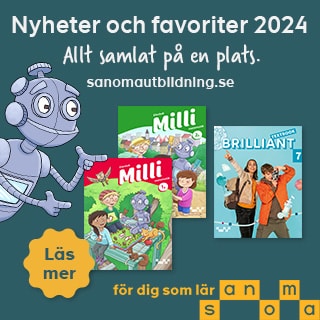Skriftbruk som yrkeskunnande i gymnasial lärlingsutbildning. Vård- och omsorgselevers möte med det arbetsplatsförlagda lärandets skriftpraktiker
Enni Paul har utforskat gymnasiala lärlingselevers möte med och användning av skrift under det arbetsplatsförlagda lärandet.
Enni Paul
Docent Marianne Teräs, Stockholms universitet Docent Viveca Lindberg, Göteborgs universitet Doktor Ingrid Berglund, Göteborgs universitet
Docent Ingrid Henning Loeb, Institutionen för pedagogik, kommunikation och lärande, Göteborgs universitet.
Stockholms universitet
2017-09-19
Skriftbruk som yrkeskunnande i gymnasial lärlingsutbildning. Vård- och omsorgselevers möte med det arbetsplatsförlagda lärandets skriftpraktiker
Literacies as Vocational Knowing in Upper Secondary Apprenticeship Education : Apprentice students participation in literacy practices during workplace based learning in health care and social work
Institutionen för pedagogik och didaktik
Literacies as Vocational Knowing in Upper Secondary Apprenticeship Education : Apprentice students participation in literacy practices during workplace based learning in health care and social work
The aim of this dissertation is to describe and critically discuss the literacies apprentice-students in the Health and Social Care programme in Swedish Upper secondary school are given the opportunity to learn during the workplace-based learning part of the education. The study draws on sociocultural and sociolinguistic understandings of literacies as well as of learning and knowing. Ethnographically inspired methods consisting of participant observation, interviews and study of textual artefacts in both the work and school domain are used to generate data. Literacy events and literacy practices students participate in are explored as part of work or school tasks. Additionally, the literacies students do not get access to at the workplaces, but that are crucial in Health and Social care work are explored.
The results implicate that use of texts, i.e. reading, writing or talking about texts, in the work domain is mostly embedded in other work tasks, such as care and nursing tasks; household tasks; medical-technical tasks; logistics tasks; or risk management tasks. This contributes to making a large part of the reading and writing invisible for the students and their supervisors. The texts used for these tasks consists of different types of checklists, instructions and information sheets. Supporting previous research on vocational literacies the results in this study confirm that texts are used as tools in work tasks and that the use of them requires vocational judgment.
A major finding is that students’ access to digital literacies is dependent on the type of workplace (health care or social care); the local culture at each ward; the individual supervisor as well as how each school has chosen to organize the workplace-based learning. Equal opportunities to learn in apprenticeship education can be questioned, as students are afforded different possibilities to engage in literacy practices during their workplace-based learning. School assignments can function in a compensatory way by introducing central texts in Health and Social care work for students, but the writing of these texts in the school domain construe them as part of different literacy practices than when writing them in the work domain. The students’ opportunities to take part in the workplace literacies are not discussed between the school teachers and the workplace representatives, and the workplaces lack explicit plans on how to provide students with access to learn how to use texts as tools at the workplace. The result thus raises questions about how students are prepared for increasingly textualized workplaces, when some students are not given any opportunities to participate in the writing of central texts during the workplace-based learning part.
Relaterade länkar

Undervisa i artificiell intelligens
 Gy–Vux
Gy–Vux 







